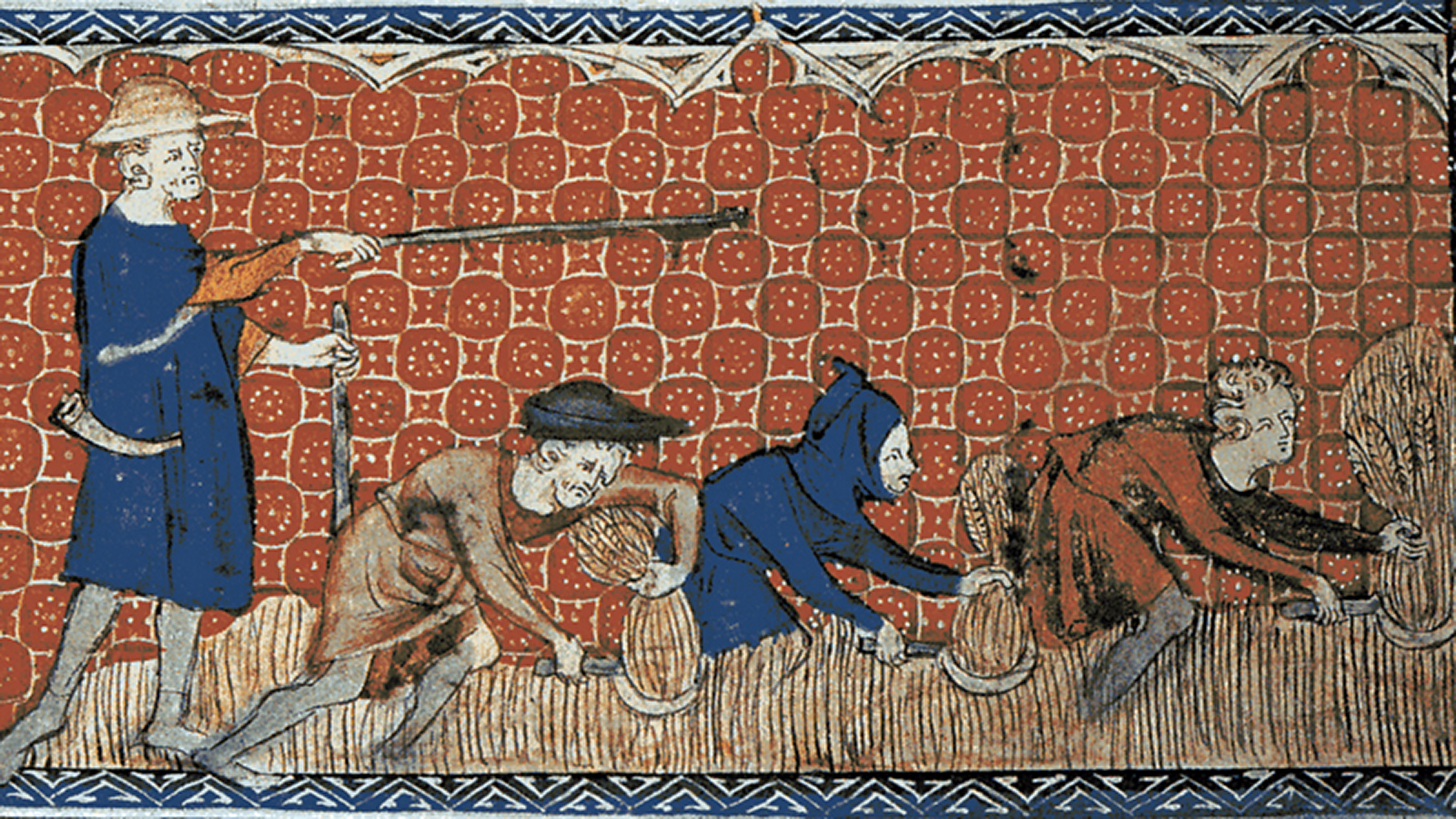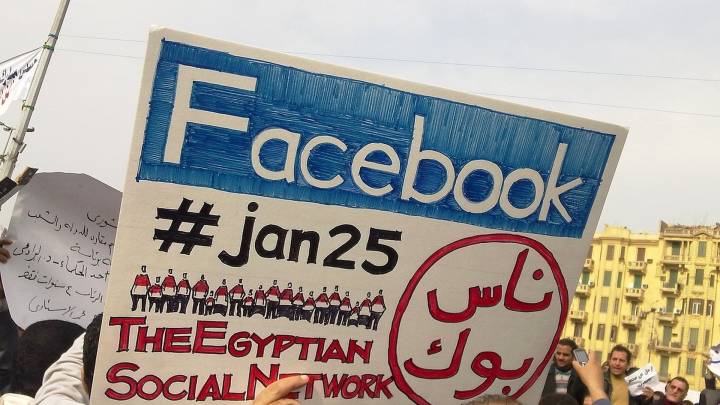How states respond to the ongoing pandemic risks rendering their citizens serfs in a new digital Middle Ages. Ramon Blecua calls on political leaders not to close the door on the coronavirus by opening the door to Big Tech.
The international system as we know it is in flux. The rapid transformations, which are currently taking place, will have far-reaching implications not only for how international relations are conducted but also for every aspect of social and economic life. The influence of powerful non-state actors on the international stage is becoming more relevant than the classic power struggles among states. The dilemmas we will face are no longer a choice between bipolar, unipolar or multipolar orders. Or whether China can be a trusted partner or whether it is the new evil empire. Or even how malign Russian influence in world affairs has become.
The real game changer is that states are no longer the protagonists on the world stage. Their diminished sovereignty has to do with the increased power and influence of transnational corporations, of which Big Tech is the prime example. Not to mention the privatisation of military force and the international role of private armies, transnational terrorist organisations and the staggering wealth of criminal organisations to contend with. Ringing the death knell of the multilateral liberal system may be premature, nevertheless it could become one of the main victims of the current pandemic.
The institutional and economic architecture put in place at the end of the Second World War, which has facilitated one of the longest periods of stability and prosperity in recent history, currently finds itself in turmoil. And not because of external threats of the so-called revisionist states. The demolition squad of this international system is headed by its founder and arbiter: The United States. It would be unfair to place all of the blame on President Trump for a systemic crisis that has been festering for over a decade.
The privatisation of surveillance technology and military services in the US is probably the clearest symptom that even the most powerful global hegemon has lost total control over what is often defined as state authority.
Some of the dynamics we are witnessing have been in motion since the end of the Cold War. They are the result of the globalisation process itself and the failures of the multilateral system, exacerbated by the current coronavirus crisis. That said, the reckless brinkmanship of President Trump’s approach to international relations is accelerating the system’s failures. His disdain for international institutions, such as the UN, WTO, EU and NATO, will further weaken the already limited capacity of these institutions to respond to the mounting challenges ahead.
Populists and other enemies of liberal multilateralism have many illusions about their capacity to replace an international order that they consider weak and ineffective with a return to the safety of state sovereignty and unilateral policies. They are as fanciful as those that still believe the international institutional architecture is solid enough to endure the current geopolitical shocks without decisive action.
The privatisation of surveillance technology and military services in the US is probably the clearest symptom that even the most powerful global hegemon has lost total control over what is often defined as state authority: the legitimate use of force to ensure social order and security. The effectiveness of such instruments to deliver results for policymakers is the subject of ongoing debate, but how some private corporations conduct warfare is undoubtedly changing the nature of international relations.
This pattern of international relationships between diverse state and non-state actors is defined by shifting alignments, with no dominant axis of cooperation or conflict around which to orbit.
Not only has the preference for military alternatives over diplomatic initiatives become easier and more acceptable for governments, but also anybody with enough money can hire a private army for their own reasons. Such a scenario more closely resembles the Condottieri of medieval Europe or the expansion of the East India Company in the 18th Century than a return to the golden age of state sovereignty.
Over the last 50 years, the so-called Westphalian state system has already suffered major transformations as multilateralism has become necessarily more prominent on the international agenda in order to regulate the deepening globalisation. The end of the Cold War gave additional impetus to this trend as the unlimited expansion of liberal capitalism and democracy seemed inevitable in a more interconnected world. The triumphalism and unrealistic expectations of the final decade of the 20th Century have been replaced by fear and uncertainty.
Many academics and pundits, as well as political leaders, are reflecting on the consequences of the current global crisis beyond the immediate health emergency. As the historian Yuval Harari writes in a recent article, many of the emergency measures taken now will become a fixture of life and the whole historical process will be fast-forwarded. The choice between totalitarian surveillance and citizen empowerment or between nationalistic retrenchment and expansion of globalisation will shape the coming historical cycle.
Concepts such as polyarchy or neo-medievalism have been circulating since the 80s but mostly as academic hypotheticals for an international system struggling to adapt to an unprecedented rate of change. The unipolar hegemony of the US quickly succumbed to a disorderly and increasingly polyarchic world in which the ‘Pax Americana’ is being challenged from all directions by a host of state and non-state actors.
This pattern of international relationships between diverse state and non-state actors is defined by shifting alignments, with no dominant axis of cooperation or conflict around which to orbit. The geopolitical analyst Robert Kaplan gained certain notoriety when he challenged the post-Cold War groupthink by predicting that the new millennium would bring about a return to the chaos of the Middle Ages. He developed Hedley Bull’s theory of neo-medievalism and popularised an altogether more apocalyptic version of the concept.
The Taliban in Afghanistan and the Houthi movement in Yemen also demonstrate how ancient tribal codes and thousand-year-old ideas can be employed to mobilise populations to defeat cutting-edge American weaponry.
The tectonic plates of international politics are shifting towards a highly unstable multipolar system in which post-Weberian states with diminished sovereignty will coexist with an eroded multilateral architecture and powerful non-state actors. France’s withdrawal of the proposal to establish a symbolic tax on Google’s estimated profits made in the country as a result of direct threats and intimidation is a good example of the new rules of the game.
The philosopher Dariush Shayegan identifies three phenomena that define our chaotic contemporary world: the loss of existence’s magical dimensions, the destruction of reason, and the replacement of imagination with audio-visual virtual reality. These phenomena are characterised by the destruction of all ontologies and the interconnectivity of all the spheres of reality, the generalisation of multiple identities and the simultaneity of different states of consciousness. The re-emergence of social and economic interactions, that echo the medieval system of fragmented authorities and multi-layered loyalties, may create new relationships of dependence in which Big Tech corporations and financial conglomerates take on the mantle of the feudal overlords.
Another result of the intersection between technological innovation and medieval mindsets is the proliferation of eschatologist ideologies and messianic cults, often in the form of transnational terrorist movements such as ISIS. The group’s online recruitment strategy seamlessly blended state-of-the-art IT with Islamic prophecies about the Day of Judgement. The Taliban in Afghanistan and the Houthi movement in Yemen also demonstrate how ancient tribal codes and thousand-year-old ideas can be employed to mobilise populations to defeat cutting-edge American weaponry.
The Tang dynasty revivalism of Xi Jinping is yet another interesting example. Supported by the success of Chinese Big Tech, China’s leader has subliminally associated his authority to the Mandate of Heaven, which all Chinese rulers throughout history have claimed. The West has the pro-independent movements of Scotland and Catalonia which, in part, ground their claims in medieval history. Then there are some American evangelical pastors who have concocted their own heady brew of charismatic leadership, messianic prophecy and sophisticated social media-driven strategies of political mobilisation.
Over the past decade the trust that citizens have in their leaders, and liberal democracy in general, has been rapidly diminishing as social media has only grown. The problem, however, is deeper than fake news, defective governance, or corruption. The narrative of the international liberal order based upon ever-increasing prosperity fuelled by endless economic growth is simply not credible anymore.
60% of the MENA region’s citizens will suffer acute economic precarity during this decade.
The Middle East offers a particularly stark example of how this crisis can accelerate a process of authority fragmentation and institutional collapse. Syria, Lebanon, Iraq, Libya or Yemen already can be considered test cases of this neo-medieval model, in which non-state actors are already the main decision-makers. According to the UNDP, more than 60% of the region’s citizens will suffer acute economic precarity during this decade.
The growing inequalities, climate crises and resource scarcities, unprecedented population displacements and the return of supposedly extinct health hazards are triggering a more pessimistic and inward-looking mindset. The spread of coronavirus in Iran and Iraq, exacerbated by US sanctions and internal mismanagement, presents an additional risk in the current context of regional confrontation.
Having assassinated Qassem Suleimani and Abu Mahdi al-Muhandis in January, the USA is continuing to engage Iran on Iraqi soil. It was even considering an attack on Muhandis’ paramilitary group, Kata'ib Hezbollah, which would have represented a serious escalation. Iran, for its part, has launched ballistic missiles against US military bases, and Iranian-backed militias have killed both US and British military personnel.
It is now a matter of when, not if, the confrontation will escalate. The combination of war and disease in Europe’s neighbouring region, where state institutions are on the verge of imploding and populations of exploding is ominous. The fear is that this combination of factors could bring Europe and the Middle East back to the future of the new Middle Ages.
The financial crisis of 2008 did not result in a radical transformation of the failed financial system. Recession may yet return as a result of the Covid-19 crisis. It would be short-sighted to believe, however, that this will solely be a consequence of the emergency measures taken against the pandemic. It stems from a much more profound problem, related to the current economic model and the political institutions that support it.
The public debt accrued by most countries, as a result of the 2008 crash and the coronavirus pandemic, will condemn future generations to be born into bondage not unlike during the feudal age.
The Reaganite deregulation of the financial markets allow wealth to flow but also dangerously widened social inequality. The lack of oversight enjoyed by Big Tech may have accelerated innovation, but it has also led to the creation of monopolies over the web’s most valuable resource: personal data. The public debt accrued by most countries, as a result of the 2008 crash and the coronavirus pandemic, will condemn future generations to be born into bondage not unlike during the feudal age.
The breakneck development of artificial intelligence, along with massive data harvesting, biometric monitoring and the proliferation of 5G will expand governments’ control over their citizens. US and Chinese militaries are competing to break new ground by researching the link between the human brain and AI systems. Their findings will not only transform how warfare is conducted but also how society is ordered. Citizens have already had their rights reduced to a choice between freedom and security, now they will be asked to choose between health and privacy.
As worrying as the rise of surveillance states is, it is even more concerning that the new technological instruments and personal data is actually in the hands of powerful private corporations. If left unaddressed, the collusion between the surveillance state and digital feudalism will blur the lines between totalitarian and democratic states in unimaginable ways; think The Matrix or Minority Report. Will we have a choice between freedom and security, or will that choice be made for us by those in control of the new technologies, destroying any semblance of democracy?
Personal data is being harvested to feed technological behemoths, while the productive economy starves.
Personal data is being harvested to feed technological behemoths, while the productive economy starves. A tenth of corporations accumulate 80% of international capitalisation, many of which are tech juggernauts. This domination is not only a boon for business, but also gives these companies uncontrollable influence in world politics. The social media manipulation in the US presidential and Brexit votes represents just the tip of the iceberg of how new methods are shaping public opinion. In a recent book, ‘Don’t Be Evil’, journalist Rana Foroohar argues that our Big Tech overlords are now able to modify perceptions and behaviours both for greater profit and control. In this new economy people are no longer the customers, they are the product itself, albeit in binary form.
With time of the essence, the decisions that political leaders, corporate executives and social activists have to make are certainly daunting. The calls to regulate Big Tech in the US are being drowned out by the argument that it would hand China the advantage in a vital strategic sector. The demands to guarantee airtight security is pushing democracies to adopt the same surveillance systems that they criticise in totalitarian states. The industry in private military contractors is already worth billions and seems to be here to stay.
The need to kickstart the economy will require new transfers of resources from taxpayers to corporate players. Can so many thorny issues be dealt with simultaneously, especially during a time of crisis? Before the new 5G networks are up and running, there is one last chance to incorporate the beneficial aspects of this technological revolution while preserving citizen’s rights and a corporate level playing field.
The main issue is not whether a Chinese company should have control of those infrastructures but whether any company or government should have that degree of power over every aspect of our day-to-day live. The impact of such decisions will have a far-reaching geopolitical impact, but while success remains uncertain, the cost of not trying will undoubtedly be much steeper.
Ramon Blecua is a diplomat, former EU Ambassador to Iraq and currently senior advisor to the policy planning unit in the Spanish Ministry of Foreign Affairs. The opinions in this article are the author’s own and do not in any way represent official policy positions of the Ministry of Foreign Affairs.




